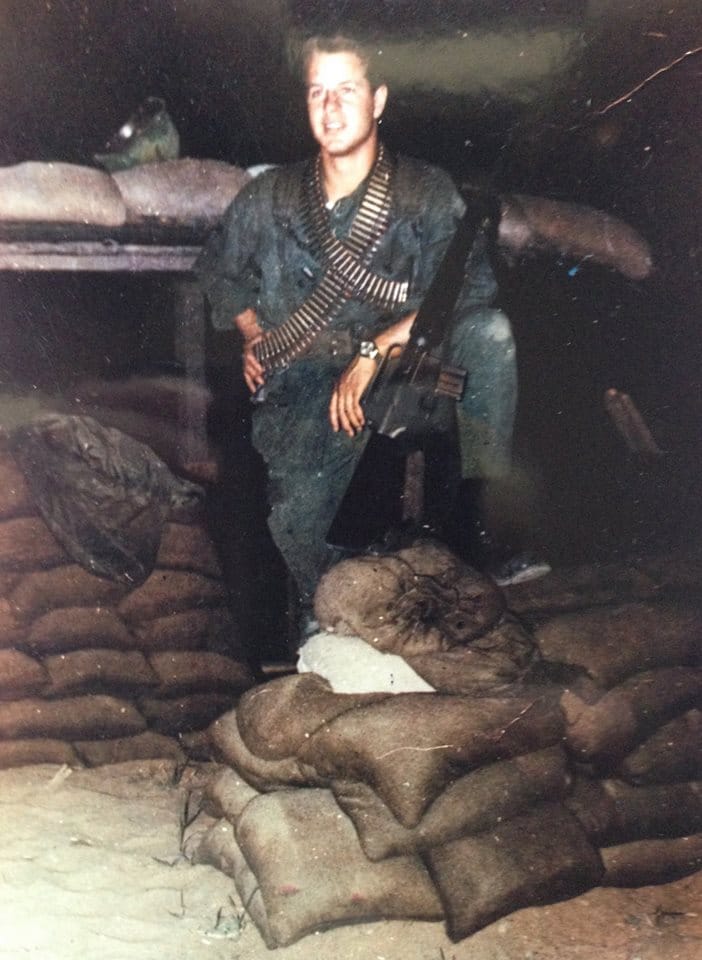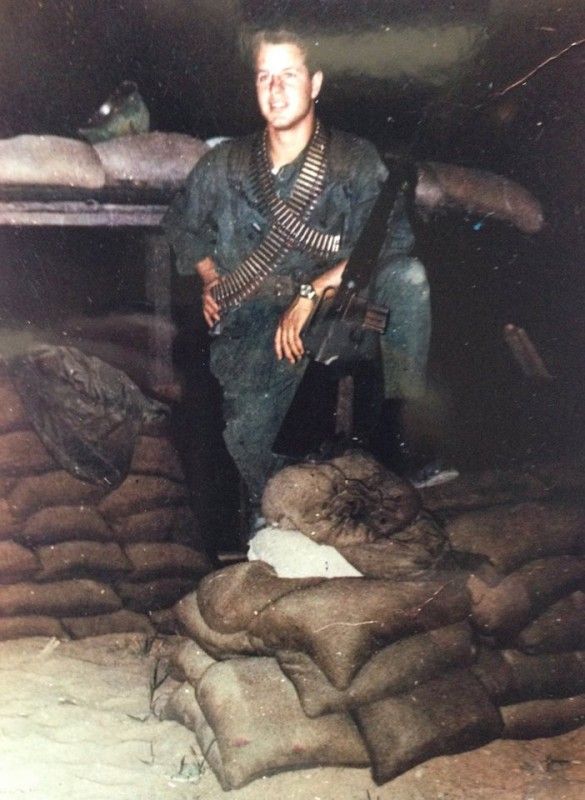Sheepshead Bay’s Jim Markson On His New Book, “Vietnam & Beyond: Veteran Reflections”


Sheepshead Bay native Jim Markson fought in the Vietnam War in 1967 and 1968, first heading over at only 19 years old. Nearly four decades later and following the suicides of two of his childhood friends who also served in the war, he was officially diagnosed with Post Traumatic Stress Disorder–but his story doesn’t end there.
Examining the 62 letters he’d written his mother during his service, as well as letters by ex-wife Jenny LaSala’s father and World War II veteran David Clinton Tharp in LaSala’s book Comes a Soldier’s Whisper, Jim noticed some familiar sentiments. Jenny put out a call for other soldiers’ stories, and together she and Jim penned Vietnam & Beyond: Veteran Reflections. We spoke to Jim about his life as a soldier and veteran, overarching themes in wartime correspondence, and how other vets can share their stories.
What did you expect from the experience of going to Vietnam, and how did those expectations align with reality?
I had joined the United States Air Force–which I joined to become an Air Traffic Controller–was put into the Security Police career field, and volunteered for Vietnam. I was full of bravado and adventure. After the Tet Offensive in 1968, I couldn’t get out of there fast enough. I had no idea what I was in for.
How did it feel coming home from Vietnam? Did you feel like a different person than before you left? How did your family and friends react to your return?
Coming home seemed like something I had been waiting for all my life. The thought of being a different person never entered my mind, but I was. The reception from my family and close friends was really great. The general community was a far different and unfortunate story.
I tend to believe that the trauma resulting from the way veterans were treated as we arrived home–the ridicule, disdain and humiliation–was equal to or worse than what we experienced during the war… I like to relate it to other groups in respect to “hiding.” As Vietnam Veterans, we “hid”– grew our hair long, wore bell bottoms and love beads, and I even grew a beard. We kept our mouths shut and tried our best to fit in with whatever part of society we could.
I can recall times when I was asked if I had been to Vietnam and I would just say “No.” It would eat me up inside that I had chosen to answer as I did. For 25 to 30 years we hid, instead of coming out of the closet; we came out of the bunker when attitudes finally changed. As a group we weathered those years with a dignity comparable to none other. We owe it to all those who never came home, and to the thousands who did and are no longer with us, to tell the story.
You say one of the inspirations for Vietnam & Beyond was reading your father-in-law’s letters home from WWII. What parallels did you find to your own experiences? What themes run throughout both his and your letters, as well as the letters by other soldiers in the book?
For sure. My father-in-law was a WWII veteran, 101st Airborne, D-Day, Bastogne and more, two Purple Hearts and Bronze Star medals.
The emotions and stories in “Comes a Soldier’s Whisper” were very similar to my own. Hopes, fears, homesickness, things that we never expected, soldier after soldier, war after war, male or female–very similar.
You were diagnosed with night terrors 39 years after the end of your service. When did you first learn about PTSD, or what would eventually be called PTSD? Were you affected in any ways besides the night terrors?
PTSD is an insidious situation. The topic would come up from time to time, but it wasn’t until 2007 and after the second childhood friend of mine took his life (both were Vietnam Veterans from Sheepshead Bay) that I sought out psychiatric help from the Brooklyn VA.
There are other things along with night terrors–alcohol consumption, intrusive memories, disturbed sleeping, exaggerated startle reaction, hyper-vigilance, isolation to avoid conflict, and inability to control tears with traumatic reminders. Emphasis on the word “insidious,” as these things take years to manifest.
What’s your take on veterans’ services in the US–both those that existed when you returned from war, and those that exist now?
Veterans’ services have improved for the better dramatically since I was discharged in 1970; however, there is still tremendous work that needs to be done. The wait times for medical care and benefits are totally unacceptable.
Have you heard any response from other veterans (or loved ones of veterans) since the release of Vietnam & Beyond?
My brother and sister (who visited me in Vietnam) and Jenny LaSala have responded to the book. Other veterans from all wars are encouraged to tell their stories on our website. Stories will be displayed on our Facebook page, Comes a Soldier’s Whisper.



